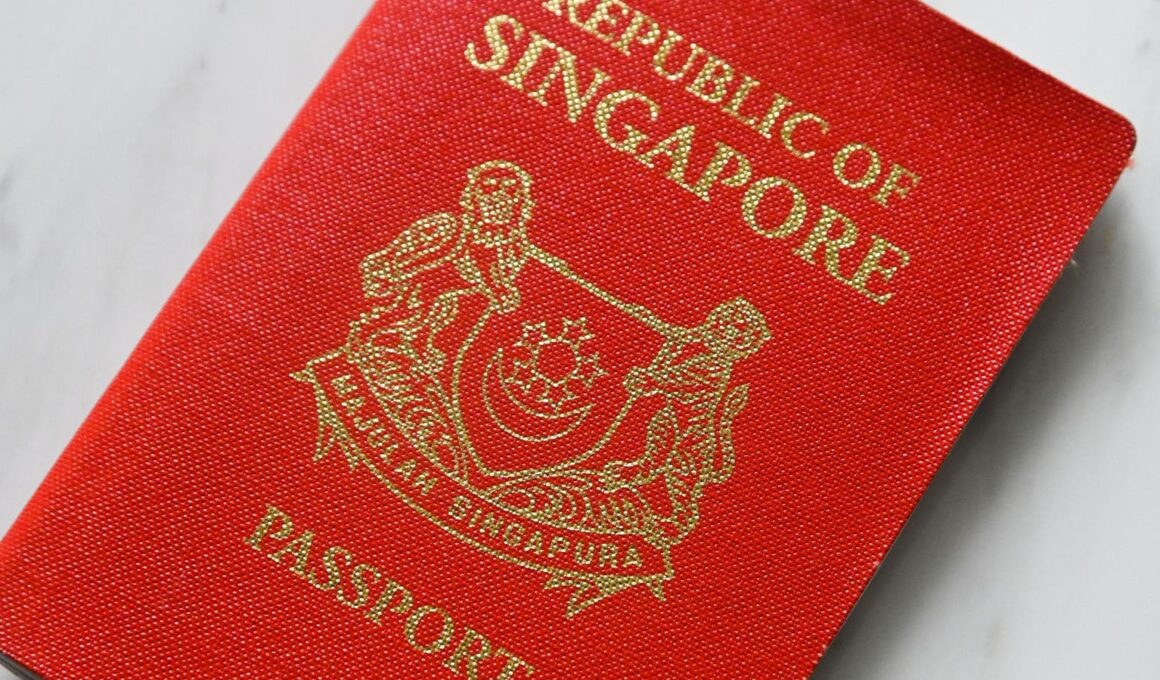Topline
Three of the world’s most powerful passports as ranked Tuesday by the Henley Passport Index are among the most difficult countries for which to obtain citizenship in the world, yet they’re also among the most coveted for their ease of travel and the unfettered access they give passport holders to nearly 200 destinations around the world.
A Singapore passport.
Key Facts
The passport index, which annually ranks the world’s travel documents according to the number of destinations their holders can access without needing visa authorization, named Singapore the most powerful passport in the world.
Citizens of Singapore have access to 195 travel destinations—more than citizens of any other singular country—and 169 more than the world’s least powerful passport, Afghanistan.
Five countries are tied as having second most-powerful passports, including Japan, which is ranked among one of most difficult countries for which to obtain citizenship, according to Global Immigration Services.
Prospective citizens must live in Japan for five years before they become eligible to obtain a passport, must pass a Japanese language test, must prove they’ll be able to make a living in the country and are forced to renounce any previous citizenship—and the process can take months or years to wind through Ministry of Justice procedures after the requirements are met.
Seven countries were ranked by Henley as tied for the third most-powerful passports in the world, and two of those were also among the most difficult to obtain—Austria and Finland.
Austria requires a decade of continuous residency or five years of marriage to an Austrian, a language test and renouncing previous citizenship before naturalization is considered—or people can apply through the citizenship by investment option, which allows applications from those who have made significant economic investments in the country.
Finland’s process can take years to complete after the requirements are met, which includes proficiency in Finnish or Swedish, five consecutive years of residency, a clean tax payment record and proof of financial stability.
Get Forbes Breaking News Text Alerts: We’re launching text message alerts so you’ll always know the biggest stories shaping the day’s headlines. Text “Alerts” to (201) 335-0739 or sign up here: joinsubtext.com/forbes.
Most Powerful Passports, According To The Henley Passport Index
1: Singapore
2 (tied): Germany, France, Italy, Japan, Spain
3 (tied): Finland, Sweden, Luxembourg, Netherlands, South Korea, Austria, Ireland
4 (tied): United Kingdom, Denmark, Belgium, Norway, New Zealand Switzerland
5 (tied): PortugalAustralia
Surprising Fact
The United States has fallen from having the strongest passport in the world to eighth place—the largest drop among any country ranked in the top 10 places. The U.S. offers visa-free access to 186 destinations, but only reciprocates by allowing the same to citizens of 45 countries.
Contra
Afghanistan is ranked as the world’s weakest passport, followed by Syria, Iraq, Yemen and Pakistan. The global mobility gap is the highest it’s ever been, Henley & Partners chairman Christian H. Kaelin said in a statement, with the lowest-ranking country providing visa-free access to only 26 countries, compared to the 195 of Singapore.
Further Reading
Mary Roeloffs is a Forbes reporter who covers breaking news with a frequent focus on the entertainment industry, streaming, sports news, publishing, pop culture and climate change. She joined Forbes in 2023 and lives in Dallas. She’s covered Netflix’s hottest documentaries, a surge of assaults reported on social media, the most popular books of the year and how climate change stands to impact the way we eat. Roeloffs was included on Editor & Publisher Magazine’s “ 25 Under 30” list in 2023 and worked covering local news in the greater Boston area from 2017 to 2023. She graduated with a double major in political science and journalism from Northeastern University. Follow Roeloffs for continued coverage of streaming wars, pop culture news and trending topics.
“>







